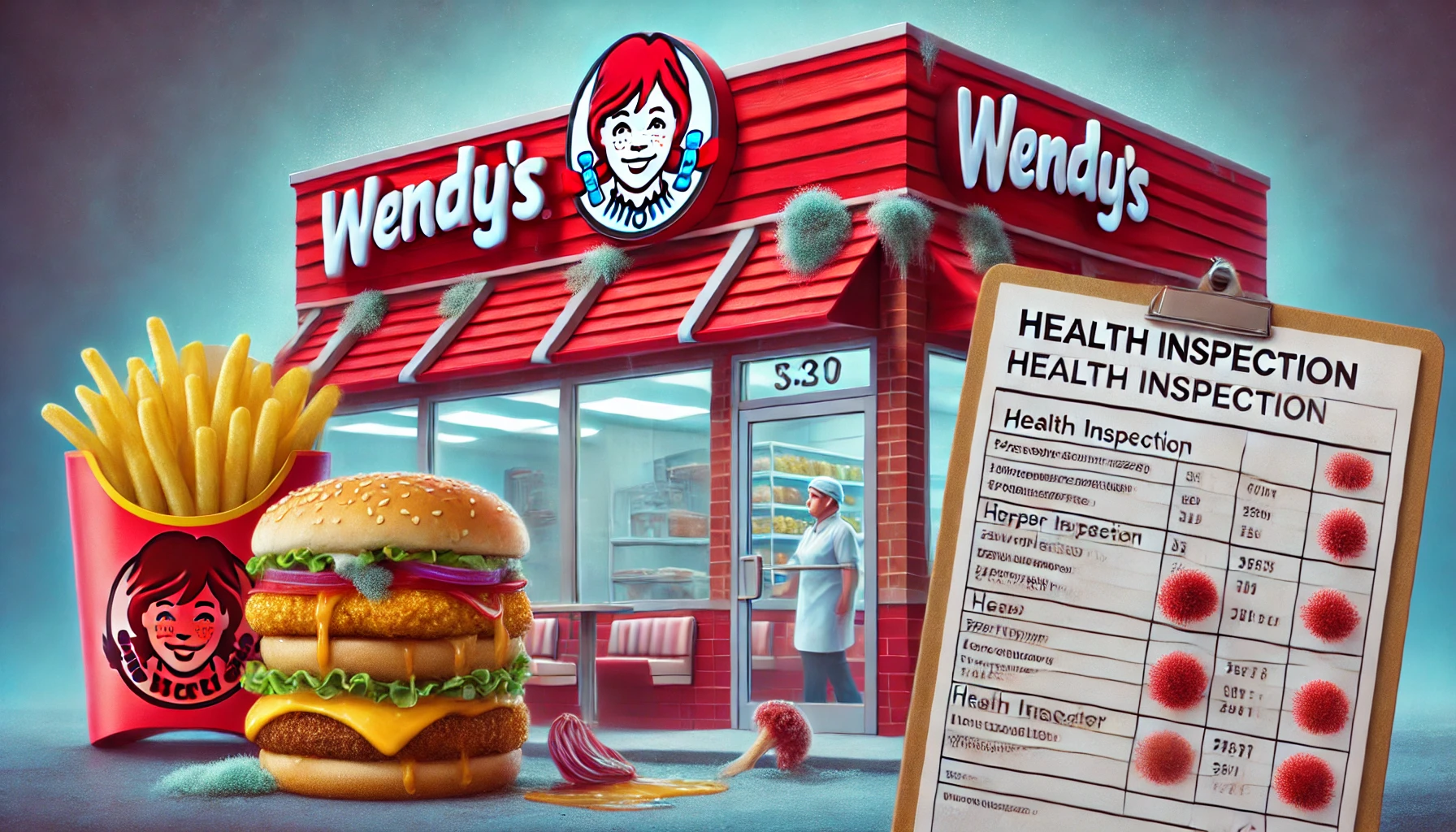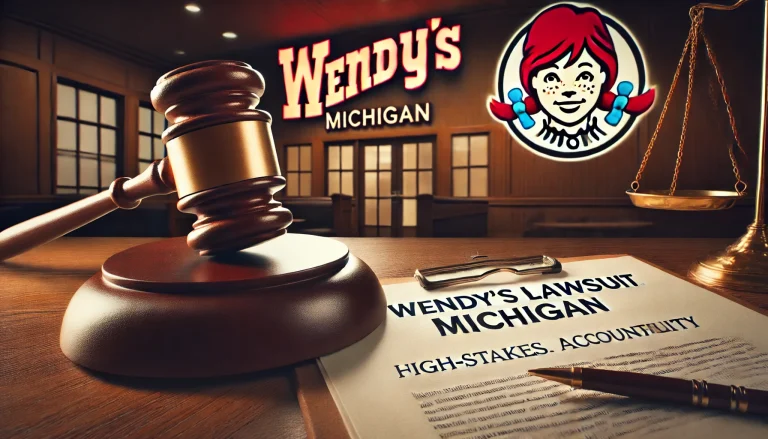In Michigan, the Wendys Lawsuit Michigan involves an 11-year-old girl named Aspen Lamfers and her family, who are pursuing $20 million in damages against Meritage Hospitality Group, the owner of a Wendy’s restaurant in Jenison. Aspen became gravely ill after eating a meal from the fast-food chain in August 2022, raising serious questions about food safety and the responsibilities of large corporations to protect their customers’ health.
Details of the Incident
On August 1, 2022, Aspen visited a Wendy’s restaurant with her family. She ordered a hamburger, chicken nuggets, and french fries. Soon after consuming the meal, she began experiencing alarming symptoms that escalated quickly. Her family, unaware of the severity of what was happening, sought medical help, leading to a diagnosis that revealed the seriousness of her condition.
Wendy Lawsuit Michigan: A Case That Highlights the Importance of Food Safety
The Wendys Lawsuit Michigan has drawn significant attention due to its serious implications for food safety and corporate accountability. Filed by the family of 11-year-old Aspen Lamfers, the case stems from a devastating incident in August 2022. Aspen became critically ill after eating a meal from a Wendy’s restaurant in Jenison, Michigan, owned by Meritage Hospitality Group.
After consuming a hamburger, chicken nuggets, and french fries, Aspen began experiencing severe symptoms, including abdominal pain, diarrhea, and bloody stools. Medical professionals diagnosed her with an E. coli infection that escalated into hemolytic uremic syndrome (HUS). This life-threatening condition led to kidney failure, brain swelling, seizures, and partial paralysis. Aspen’s illness required extensive medical care and left her with lasting health complications, including cognitive impairments.
Health inspections conducted at the Wendy’s location revealed alarming violations, such as moldy food, improper storage practices, and inadequate employee hygiene. These findings raise questions about whether the restaurant’s reopening on August 1, 2022, was premature, as it had recently been closed due to similar violations.
The family’s $20 million lawsuit claims that the restaurant’s negligence in food safety directly caused Aspen’s illness. They are seeking compensation for medical expenses, future financial losses, and the impact on Aspen’s quality of life. Meanwhile, Meritage Hospitality Group denies any wrongdoing, maintaining that it adhered to proper safety protocols.
This lawsuit is not just about one family’s tragedy but also a wake-up call for the fast-food industry. It underscores the critical need for strict health inspections, improved hygiene standards, and corporate responsibility to prevent similar incidents in the future. The outcome of this case may set an important precedent for how food safety is prioritized in the fast-food sector.
Medical Consequences
The symptoms Aspen experienced included intense abdominal cramps, diarrhea, and blood in her stool. Doctors identified the cause as an E. coli infection, a bacteria often linked to contaminated food. This infection led to a severe complication known as hemolytic uremic syndrome (HUS). HUS is a life-threatening condition that causes damage to the kidneys and other organs.
Aspen’s case was particularly severe. She suffered kidney failure, brain swelling, seizures, and partial paralysis. Her condition required weeks of hospitalization, and she continues to face lasting effects, including brain damage and cognitive impairments. These challenges have permanently altered her life and require ongoing medical care and rehabilitation.
Restaurant’s Health and Safety Violations
After Aspen’s illness, health inspectors investigated the Jenison Wendy’s location and found shocking violations. Reports revealed:
- Moldy and spoiled food stored in the kitchen.
- Improper food storage practices that could lead to contamination.
- Poor hygiene practices among employees.
These violations were significant enough that the restaurant had temporarily closed in late July 2022 to address them. However, it reopened on August 1, the same day Aspen consumed her meal, raising concerns about whether the necessary improvements had truly been made.
Legal Allegations
Aspen’s family has accused Meritage Hospitality Group of negligence in maintaining food safety and proper hygiene standards. The lawsuit alleges that the contaminated food Aspen consumed was a direct result of the restaurant’s unsanitary conditions. The family argues that the company failed to take adequate measures to protect its customers, leading to Aspen’s severe and life-altering illness.
Family’s Perspective
For Aspen’s family, the lawsuit is not just about financial compensation but also about justice. They are seeking $20 million in damages to cover:
- Aspen’s extensive medical expenses, both past and future.
- The impact on her quality of life, which has been severely diminished.
- Loss of future opportunities due to the cognitive impairments caused by her illness.
The family hopes the case will hold the company accountable and prompt stricter food safety practices in the industry to prevent similar tragedies.
Defendant’s Response
Meritage Hospitality Group, the owner of the Wendy’s location, has denied any wrongdoing. The company insists it adheres to food safety protocols and contests the claims made by Aspen’s family. The legal battle is ongoing, with both sides presenting their arguments.
Broader Implications
This lawsuit is about more than one family’s tragedy; it brings attention to critical issues in the fast-food industry. Customers trust restaurants to provide safe and hygienic meals, and this case highlights the consequences of failing to meet those expectations. It has sparked a larger conversation about:
- The importance of regular and thorough health inspections.
- Holding corporations accountable for food safety standards.
- The need for stronger regulations to protect public health.
For Wendy’s, the lawsuit could lead to increased scrutiny of its operations and potentially harm its reputation.
Current Status and Next Steps
As of now, the lawsuit has not been resolved. The case is still in court, with possible outcomes including a settlement or a ruling by a judge or jury. Regardless of the legal outcome, the case has already raised awareness about the importance of food safety and could lead to changes in how fast-food chains handle their operations.
Last Word
The Wendys Lawsuit Michiganhighlights the devastating impact of foodborne illnesses on individuals and families. Aspen’s story serves as a tragic example of the consequences of food safety failures. Beyond the legal battle, this case underscores the urgent need for the food industry to prioritize hygiene, enforce accountability, and adopt stricter standards. It also calls on consumers to advocate for greater transparency and responsibility from the companies they trust with their well-being.
FAQs
What caused Aspen Lamfers’ illness after eating at Wendy’s?
Aspen contracted an E. coli infection from contaminated food, leading to severe complications like kidney failure and brain damage.
What violations were found at the Wendy’s restaurant in Jenison, Michigan?
Health inspections revealed moldy food, improper storage, and poor employee hygiene practices.
What is the family seeking in the lawsuit against Meritage Hospitality Group?
They are demanding $20 million for medical expenses, future losses, and the impact on Aspen’s quality of life.
Has Meritage Hospitality Group accepted responsibility for Aspen’s illness?
No, the company denies any wrongdoing and maintains they followed food safety protocols.
What broader impact could this lawsuit have on the fast-food industry?
The case highlights the importance of strict food safety standards and may lead to increased scrutiny of industry practices.
Article Recommendations
Third Culture Bakery Lawsuit: How Public Opinion Influences Intellectual Property Decisions
Abilene Asbestos Legal Question: How to Identify, Handle, and Seek Justice for Asbestos Exposure
Vermont Mesothelioma Legal Question: How Vermont’s Statute of Limitations Impacts Your Case




